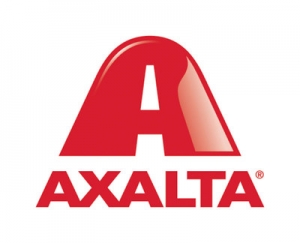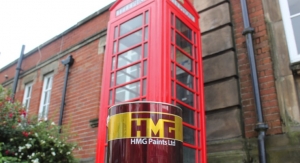Kerry Pianoforte, Editor12.09.16
2016 has been an interesting year in terms of political changes. The UK’s recent 52/42 vote to leave the European Union will certainly have an impact on the coatings industry. A recent survey by the British Coatings Federation (BCF) of its members found that over 70 percent of them believe that EU withdrawal, termed Brexit, will have negative effects on their businesses.
Our European correspondent, Sean Milmo wrote extensively on the potential ramifications of Brexit on the UK and the global coatings market in his August 2016 column. Data from the BCF suggests that much of the European coatings industry would like the UK to stay within the single market. The UK is one of the largest national coatings markets in the EU, with annual total sales of $3 billion, according to BCF figures.
According to Milmo, Brexit would give the UK the chance of reaching its own free trade agreement, which could open up new coatings markets outside Europe. Once the country has left the EU, it would be able to draw up regulations aimed at easing the cost burden on business.
“Just how much changes in the post-Brexit era impact the coatings sector will depend on the outcome of the negotiations on a withdrawal agreement between the UK and the EU. These are likely to begin early next year, after the UK has formally told the EU Council, representing EU governments, that it is invoking Article 50 of the 2007 Lisbon Treaty which allows member states to pull out of the Union.”
Milmo concluded that the UK government has not yet decided exactly what it wants out of the Brexit negotiations. “But it is likely to be a deal enabling the country to have access to the EU’s single market without tariff and non-tariff barriers,” he noted.
Across the pond we have experienced a similar shakeup within our political system. The election of Donald Trump sent shockwaves throughout the world. Upon news of his election global stock markets dropped rapidly, but according to a recent NY Times article, markets staged a recovery as investors shook off the shock of a Trump presidency and began to focus on whether his mix of policies could spur a still-fragile global economic recovery. Market experts cited in the article said that Trump’s victory should be viewed as a loud signal from the U.S. that the time had come for fiscal policy in the form of increased government spending to replace central bank activism as a means to stimulate economic growth. Market analysts are speculating how Trump will balance these policies, which are mostly positive for financial markets, with his promises to increase trade barriers on goods from Mexico and China.
Come inauguration day in January and beyond one thing is for certain, all eyes will be on the U.S. and what a Trump presidency means for both the U.S. and world economy.
Our European correspondent, Sean Milmo wrote extensively on the potential ramifications of Brexit on the UK and the global coatings market in his August 2016 column. Data from the BCF suggests that much of the European coatings industry would like the UK to stay within the single market. The UK is one of the largest national coatings markets in the EU, with annual total sales of $3 billion, according to BCF figures.
According to Milmo, Brexit would give the UK the chance of reaching its own free trade agreement, which could open up new coatings markets outside Europe. Once the country has left the EU, it would be able to draw up regulations aimed at easing the cost burden on business.
“Just how much changes in the post-Brexit era impact the coatings sector will depend on the outcome of the negotiations on a withdrawal agreement between the UK and the EU. These are likely to begin early next year, after the UK has formally told the EU Council, representing EU governments, that it is invoking Article 50 of the 2007 Lisbon Treaty which allows member states to pull out of the Union.”
Milmo concluded that the UK government has not yet decided exactly what it wants out of the Brexit negotiations. “But it is likely to be a deal enabling the country to have access to the EU’s single market without tariff and non-tariff barriers,” he noted.
Across the pond we have experienced a similar shakeup within our political system. The election of Donald Trump sent shockwaves throughout the world. Upon news of his election global stock markets dropped rapidly, but according to a recent NY Times article, markets staged a recovery as investors shook off the shock of a Trump presidency and began to focus on whether his mix of policies could spur a still-fragile global economic recovery. Market experts cited in the article said that Trump’s victory should be viewed as a loud signal from the U.S. that the time had come for fiscal policy in the form of increased government spending to replace central bank activism as a means to stimulate economic growth. Market analysts are speculating how Trump will balance these policies, which are mostly positive for financial markets, with his promises to increase trade barriers on goods from Mexico and China.
Come inauguration day in January and beyond one thing is for certain, all eyes will be on the U.S. and what a Trump presidency means for both the U.S. and world economy.
















